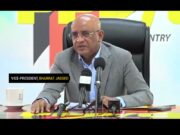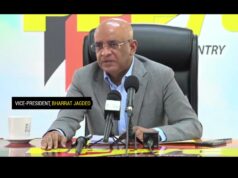The World Bank has noted that a serious shortcoming of the Environmental Protection Agency (EPA) is its lack of adequate monitoring and follow-up capacity for Environmental Impact Assessments (EIA).
The Bank warned that while most emerging oil producers are usually concerned with approving oil and gas development projects and granting licenses, “Guyana must strive to be the exception and adequately manage any subsequent impacts these projects may have.”
The Bank noted that training aimed at improving the monitoring and follow-up capacities of government regulatory agencies would be useful in this regard. It said that on-the-job training is preferable so as to make use of real-world experience and maximise the benefits of capacity building. The Bank said that such training should be linked to efforts to strengthen regulatory compliance initiatives, as lack of capacity is strongly correlated with the lack of clearly defined regulatory requirements and consistent enforcement practices.
Further to this, the World Bank said, “It is unrealistic to expect that the current monitoring and follow-up capabilities in Guyana’s environmental regulatory agencies will be able to withstand the pace of development that will occur in the oil sector. It would thus be useful to support the involvement of external consultants or organisations to help the Government of Guyana develop environmental management capacities beyond project approvals.”
The missive, which was sent to the EPA and seen by this news agency, notes that this could be accomplished by placing experts in Guyana over a two to three-year period during which they could be a catalyst for the EIA’s monitoring and follow-up capacities and provide in-house capacity development. The Bank said that these experts would provide an immediate source of experience, training, capacity building, and regulatory enhancement that could not be achieved through training on a short-term basis.
This advice was provided on the basis that the EPA since 2015 to now, remains without a single person who could properly and consistently review and monitor EIAs for oil companies. EPA’s Head, Dr. Vincent Adams has confirmed that this is the case since it has no money that was budgeted for this process.













